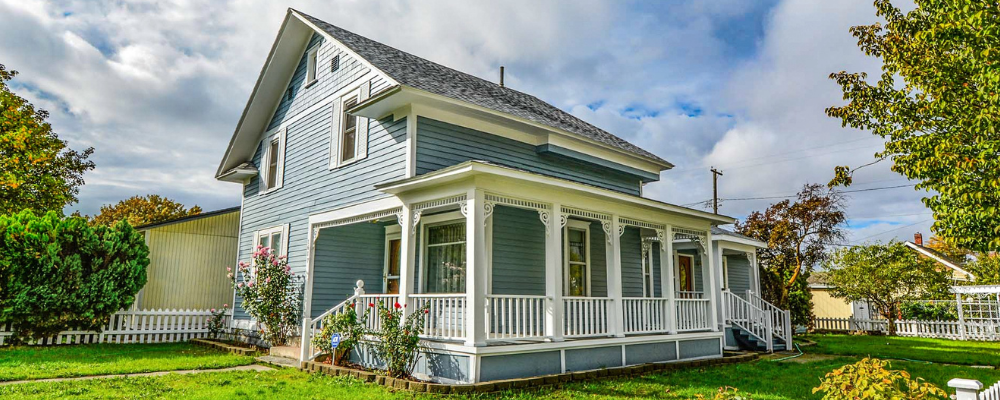A quick overview
Getting finance along your real estate investing journey is a vital part of the strategy. While refinancing a primary residence is a popular choice amongst homeowners, the question is, can you refinance investment property? Let’s take a look at whether this can be a successful financial solution for investment property owners.
Key Topics
The world of real estate investing is fast-paced and exciting however, investors should stay agile so that they can continue to make their investment properties successful. This means that real estate investors are often looking for financial hacks to decrease the expenses on their investment property.
One of these hacks comes in the form of refinancing investment property loans. That’s right, refinancing. Didn’t think you could refinance an investment property? Well, we’ve got some good news for you…
Can you refinance a rental property?
Great news for real estate investors… yes, you can refinance a rental property!
It works in a similar way to a refinance on a primary residence, except lenders usually have a more stringent set of requirements to do this on an investment property. The main drawcard for refinancing is the fact that it helps investors improve their cash flow and lower monthly mortgage payments.
How to refinance investment property
When you’re deciding if refinancing is the right solution for you, here are a few questions to ask yourself:
- Will refinancing take you closer towards achieving your financial goals?
- Had you planned on holding onto the property for many years?
- Is there enough equity in the property to make refinancing a worthwhile option?
- Will the refinance rates be lower than your current loan rates?
Make sure to factor in your debt-to-income ratio as well, to make sure that you can afford to refinance. Once you’ve determined that refinancing is the best financial solution for you to reach your financial and investing goals, the process can begin. Here’s how it works:

Step 1: Figure out your goal
The first step is to look at why you are refinancing an investment property and what your financial goals are with it. Whether you are planning on using the money to buy more investment properties, decrease the loan terms so that you can pay off your loan quicker, or any other reason, your goal will be the critical part of the plan so that you have a good grasp on what you want to achieve.
Step 2: Run the numbers
The next step is to run the numbers on the refinancing and work out how long it will take to break even. From there, you can find a lender that will allow you to refinance your investment property and achieve the financial goals you have. This typically means a lender who has lower interest rates than you are currently paying. Don’t forget to factor in all the costs, such as closing costs and any fees that the lender will charge, when working out how to break even.
Step 3: Get your documents ready
There can be a lot of paperwork when it comes to refinancing an investment property, so it would serve you to get your documents together at the outset. The type of documentation you’ll need includes:
- Proof of income: Your original pay stubs may be necessary, dating back 30 days, and/or bank statements or other ways to verify your income if you’re self-employed.
- W-2 or 1099 forms: Copies of these documents will usually suffice. These will assist lenders with verifying your income and employment history.
- Homeowners’ insurance: Proof that you have homeowners’ insurance will be necessary for lenders so that they can ensure you have adequate coverage on your investment property.
- Asset report: Lenders will want to see detailed information on the assets that you possess, so that they can rest assured that you’re able to cover any extra expenses or continue with your repayments, should you lose your current employment.
- Title insurance: Proof of your title insurance, with your name on it, is necessary for lenders to determine that you are the lawful owner of the property, as well as to verify your taxes.
- Rental information: Your rental agreements are an important document for lenders to see, so that they can evaluate how profitable your investment property is.

Step 4: Submit your application
Once you’ve gathered your documentation, it’s time to submit your application. This means you’ll need to make sure that you’ve got everything the lender requires and you’re not missing any information. The good news is that this can often be done online.
Step 5: Review loan terms and rates
After you’ve submitted your application, you’ll find out if you’re approved or not. If your loan is approved, then you’ll need to review the loan terms and rates as part and parcel of the offer. It’s a good idea to secure the interest rate right away, if you’re happy with it, because rates can increase, and you may miss out on that particular rate if you don’t lock it in soon. Depending on the lender, once you’ve locked in a rate, it will last anywhere between 15 and 60 days.
Step 6: Underwriting
The next step is for the lender to do the underwriting process for the loan, once you have locked in your rate. This process entails the lender verifying the documents you have provided including your income and ordering an appraisal of the property. Sometimes the underwriting process can be done in a few days, but it can take over a week.
Step 7: Loan closing
Once the underwriting process is complete, the loan closing can take place. This involves settling the closing costs, signing the final contract and solidifying the refinancing deal. You’ll need to review the Closing Disclosure beforehand, and then pay your fees and closing costs. Then your refinance is good to go.
Advantages of a cash out refinance for investment property

- Lower interest rate: The interest rates on a primary residence can be 0.5% – 0.75% lower than those on an investment property loan. So, if you can refinance a property that you can prove is successful already, this would give you a lower rate than getting a new loan, which means that your mortgage payments would be lower than having two loans.
- Make improvements: Refinancing an investment property means that you can use the funds to repair and renovate the property, essentially upgrading your investment, and then be able to charge a higher rent. This can be a wise investment decision that pays off your debt quicker with the higher rental income.
- Change loan terms: You can use an investment property refinance to either shorten or lengthen your loan terms. If you’re struggling to make your payments, you can use the refinance to buy you more time to pay off the loan, and if you’re wanting to pay it off quicker, you can use the refinance to shave off a few years. It’s also possible to switch between adjustable and fixed-rate loans with a refinance, to suit your needs.
- Get cash out: If you did a cash-out refinance you’d get paid out a lump sum of equity that you’ve put into the home, and you can use this to pay for anything. Such as, credit card debt, college tuition and more. Getting a lump sum of money to use is handy for a variety of purposes.
- Finance more real estate investments: If you’d like to further your real estate investing journey and achieve your goals quicker, you can use the refinance to fund another investment property by covering the down payment. This way, you can continue down the real estate investing path and invest in more properties to make a higher profit and expand your portfolio.
Disadvantages of refinancing a rental property
- Stricter LTV rules: The Loan-to-Value (LTV) ratio for doing refinancing on an investment property is usually 75% or lower. The rules around the LTV ratio for these loans are more stringent than for primary residences.
- Higher interest rate: The interest rates on loans that have been refinanced are higher than primary residences, in some cases as much as 0.5% higher. This is something to bear in mind, because it may lead to this option being bad for your cash flow.
- Closing costs: The closing costs on a refinance can be high, typically 2% of the loan amount. This can be thousands of dollars, so it’s important to factor this into your decision.
- Payment schedule reset: With a refinance, any interest that you had been paying on the loan will no longer count as the payment schedule gets reset back to the beginning. Which means the interest previously paid no longer counts towards to amount you still need to pay off.
Banks that refinance investment properties

If you’re looking for a bank that will provide the option to refinance your investment property, your best bet is to use a referral from someone in the real estate industry or do a thorough online search. Here are a few options to get you started:
- Citizens Bank: They offer refinancing options for home mortgages with 4.855% rates on a 15-year fixed-rate APR, and 5.520% on a 30-year fixed-rate APR. The bank offers an all-online process, which can be done from anywhere.
- Capital Bank: This bank offers refinancing on home loans for debt consolidation or cash-out purposes. They offer a fully digital process for either adjustable-rate mortgages (ARM) to fixed-rate mortgage refinance, or a HELOC (home equity line of credit) into a fixed-rate mortgage.
- US Bank: This bank offers refinancing in 3 different forms: traditional refinance, cash-out refinance or a smart refinance. Each comes with a different interest rate and loan term.
- Flagstar Bank: The minimum credit score for refinancing loans with this bank is 620, and they offer a 21-to-31 day average closing time.
Other ways to refinance a rental property
If banks aren’t the route for you, you can also refinance your investment property through one of the following entities:
- Credit unions: These are another option for refinancing, and they typically offer various choices for the type of refinance such as cash-out refinances.
- Private lenders: Lenders who are not associated with any financial institution can also provide refinancing options, which can result in more flexible loan terms.
- Hard money lenders: Some hard money lenders, for example New Silver, offer refinancing options on their rental loans. These are typically longer loans, with slightly lower interest rates and less stringent lending criteria.
- Mortgage brokers: Brokers typically help you to secure the best loan terms with lenders, so these can be a valuable resource when looking for another refinancing option.
There are many options to choose from, for refinancing. Doing your homework on each option will allow you to make the best decision.
The bottom line
Refinancing a rental property can be a great solution for real estate investors, while it may not be the answer for everyone, it’s a useful answer for investors who need funds to purchase more investment properties, want to renovate theirs or who need the cash. Now that you know how it all works, you can make a more informed decision on whether refinancing is the right financial solution for your goals.

